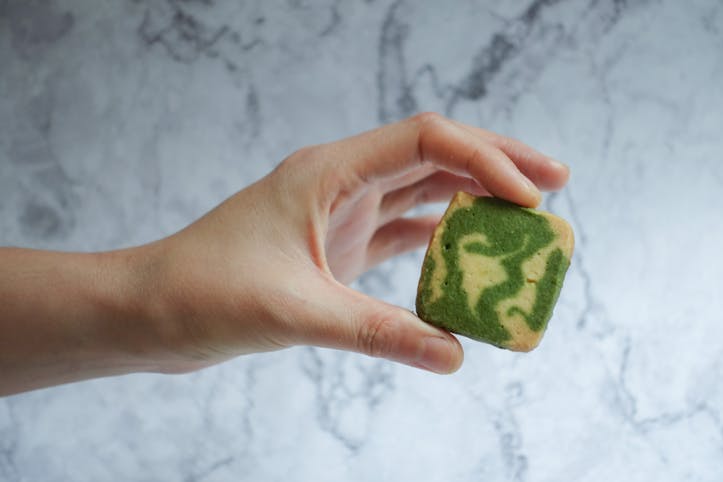Fasting Matcha: A Guide to Enhancing Your Fast with Tea
When considering fasting matcha emerges as a beverage that can significantly enhance your fasting experience. This blog post will delve into the benefits and methods of incorporating matcha tea into your fasting routine.
The Benefits of Matcha During Fasting
Matcha, a finely ground powder made from specially grown and processed green tea leaves, has been celebrated for centuries in Japan. Its unique preparation method preserves the nutrients found in the tea leaves, providing a richer concentration of vitamins, minerals, and antioxidants compared to traditional green tea. Here’s why matcha is an excellent choice during fasting:
Rich in Antioxidants: Matcha is packed with catechins, a class of plant compounds in tea that act as natural antioxidants. These compounds help stabilize harmful free radicals, which are linked to cell damage and aging. A particular catechin called epigallocatechin gallate (EGCG) is abundant in matcha and is renowned for its cancer-fighting properties.
Supports Metabolism: Studies have shown that matcha can increase thermogenesis, the body’s rate of burning calories, from a normal 8%-10% of daily energy expenditure to between 35% and 43%. This makes it a potentially beneficial drink for weight management during fasting.
Enhances Focus and Calm: Matcha contains an amino acid called L-theanine, which promotes relaxation without drowsiness. It’s also known to enhance mood and improve concentration, which can be particularly useful during the mental challenges of a fast.
Detoxifies the Body: The chlorophyll content in matcha is excellent for detoxifying the body. Chlorophyll can help eliminate both chemicals and heavy metals from the body, which is especially beneficial during fasting when your body is already in a natural state of detoxification.
How to Incorporate Matcha into Your Fasting Plan
Integrating matcha into your fasting plan is straightforward, but there are a few guidelines you should follow to ensure you reap the maximum benefits:
1. Choose High-Quality Matcha: Select ceremonial grade matcha for the highest nutrient profile. This type of matcha is made from the youngest tea leaves and has a more delicate flavor and higher concentration of nutrients.
2. Mind the Timing: The best time to consume matcha during a fast is usually in the morning or early afternoon. This is when your body can utilize the energy boost without affecting your sleep.
3. Prepare It Correctly: Traditional matcha preparation involves sifting 1-2 teaspoons of matcha powder into a bowl, adding hot water (not boiling, as it can destroy some of the nutrients), and whisking it with a bamboo whisk until it becomes frothy.
Adapting Matcha for Different Types of Fasts:
– For Intermittent Fasting: Drink a cup of matcha during your eating window as a way to increase antioxidants and help with appetite control.
– For Prolonged Fasting: Use matcha as a way to provide some nutrients to your body without breaking the fast. It’s practically calorie-free and can help you maintain energy levels.
– For Religious or Spiritual Fasts: Matcha can be a ceremonial drink that helps maintain focus and clarity during fasting periods.
Remember, while matcha can be a great addition to your fasting regimen, it’s important to listen to your body and consult with a healthcare provider, especially if you have any underlying health conditions.
Integrating fasting matcha into your diet can offer numerous health benefits and enhance your fasting experience. Whether you’re looking to support weight management, detoxify your body, or simply enjoy a calming ritual, matcha might just be the perfect complement to your fasting journey.
Discover the benefits of integrating fasting matcha into your routine, and how this antioxidant-rich tea can enhance your fasting experience.
Recent Posts
- Fasting Tea Benefits: A Look at Alternatives to White Yogi Healthy Tea
- Fasting Tea Benefits After White Yogi Discontinuation
- Fasting Tea Benefits: What Happened to White Yogi Healthy Fasting Tea?
- Fasting Tea Benefits – What Happens When Discontinued?
- Unlocking Alternatives to White Yogi Healthy Fasting Tea
- Fasting Tea Benefits and Alternatives When White Yogi Healthy Brand Discontinued
- Fasting Tea Trends: The Discontinuation of White Yogi Healthy Tea
- Fasting Tea Discontinued: What’s Next for White Yogi?
- Fasting Tea Benefits and Alternatives to White Yogi Healthy Fasting Tea
- Fasting Tea Benefits: The White Yogi Healthy Brand Discontinuation
